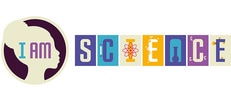|
“Science is a way of thinking much more than it is a body of knowledge.”
“과학은 지식의 집합체보다 사고방식이다.”
Science is a way of thinking and knowing! While the content and “facts” of science are important for students to learn, learning to think like a scientist is much more essential. Science is not a list of facts to remember but a process of learning and discovering. 과학은 인지와 사고하는 방법입니다! 과학의 내용과 “사실”은 학생의 배움에 중요하지만, 과학자처럼 생각하는 법을 배우는 것이 훨씬 더 필수적입니다. 과학은 기억해야할 사실의 목록이 아니라 배우고 발견하는 과정입니다. At school, the teacher helps students:
학교에서 교사는 학생들이 다음과 같이 할 수 있도록 돕습니다.
Students can:
학생들은 다음과 같이 할 수 있습니다.
Helping your child make sense of their learning:
가정에서 학부모님은 다음과 같이 학습을 지원하실 수 있습니다. 자녀가 학습 내용을 잘 이해할수 있도록 지원하는 방법:
Having conversations about science:
자녀와 과학에 대해 이야기 나누는 법:
Thank you, 감사합니다
0 Comments
Leave a Reply. |
Jamie HartA teacher from the United States of America, currently teaching abroad. I teach science to middle and high school students. I enjoy reading and doing nerd things. Archives
April 2023
Categories
All
|

 RSS Feed
RSS Feed
